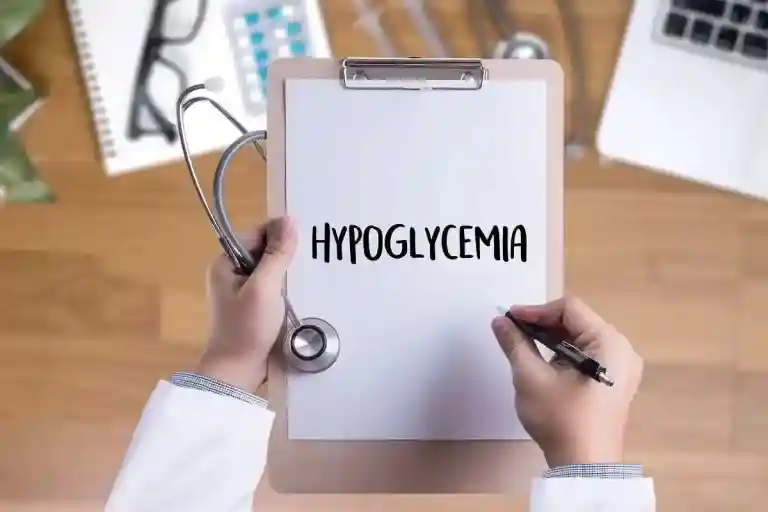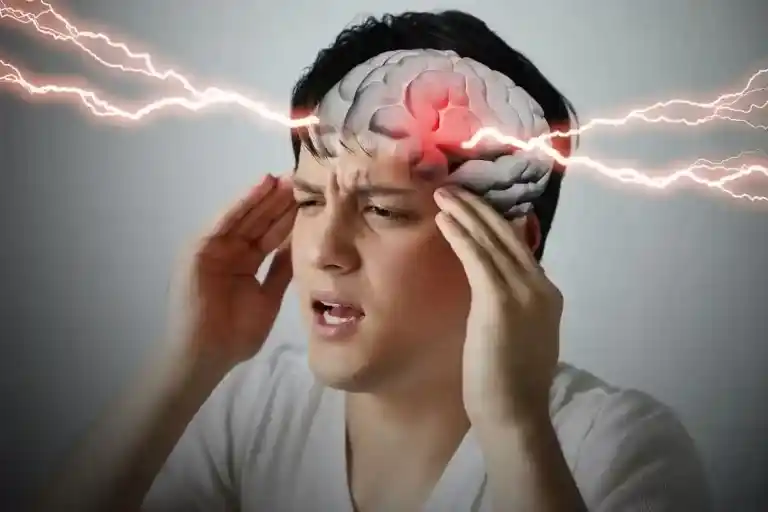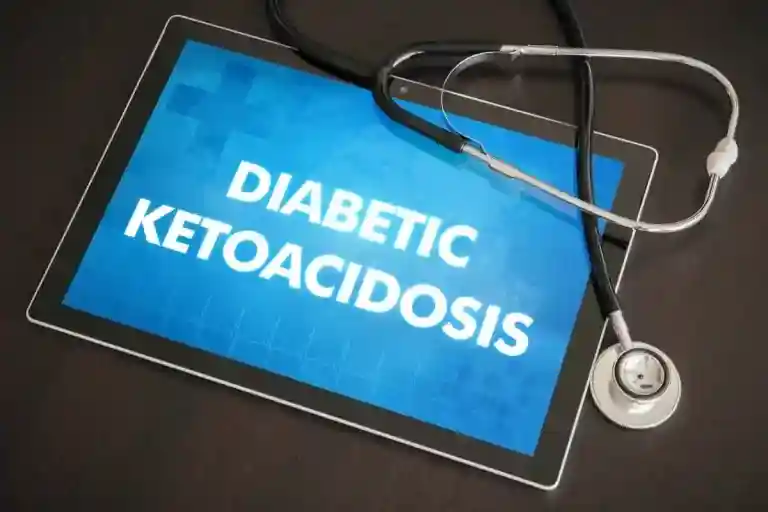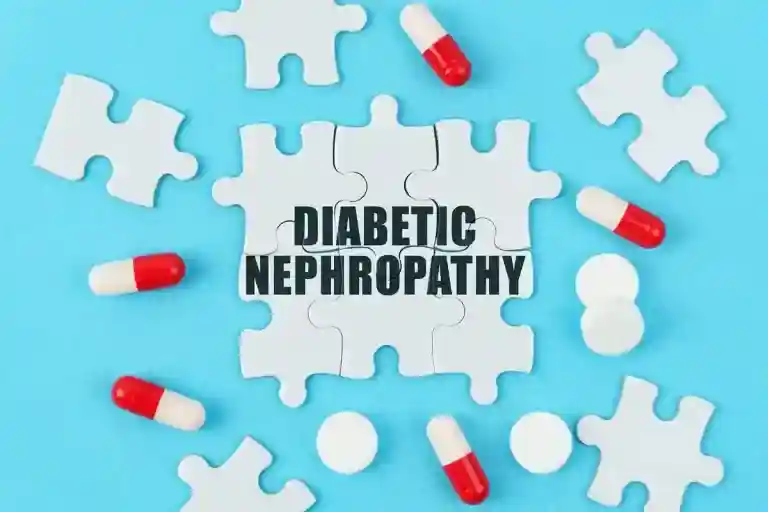Hypoglycemia, usually referred to as low blood sugar or low blood glucose, occurs when the concentration of glucose (sugar) in an individual’s bloodstream falls below the standard range. It is a common occurrence in individuals with diabetes, particularly Type 1 diabetes. This condition makes immediate hypoglycemia symptoms treatment requisite. The patients must consume sugar or carbohydrates if they have an episode of low blood sugar.
What is Diabetes Hypoglycemia?
Hypoglycemia frequently occurs among individuals with diabetes, particularly those who use insulin as part of their diabetes treatment. Severe hypoglycemia can be life-threatening and demands intervention through the administration of emergency glucagon or medical care.
For most individuals with diabetes, hypoglycemia is identified and diagnosed as having a blood sugar level below 70 mg per deciliter (mg/dL) or 3.9 millimoles per liter (mmol/L). For most individuals without diabetes, hypoglycemia is recognized as having a blood sugar level below 55 mg/dL or 3.1 mmol/L.
What are the Causes of Diabetes Hypoglycemia?
Hypoglycemia can be caused by several factors. These factors might differ from patient to patient and include both medical reasons and lifestyle habits. Some causes of hypoglycemia are listed below:
- Taking too much insulin: Taking excessive insulin can be a leading cause of diabetes hypoglycemia.
- Timing of insulin administration: The specific time when a person injects or administers insulin in relation to their meals and activity can also lead to hypoglycemia.
- Inadequate carbohydrate consumption: Not eating enough carbohydrates in proportion to the insulin taken can lead to low blood sugar levels.
- Physical Activity: The level of physical activity or exercise a person engages in and the time of the activity can have an impact on blood sugar levels.
- Composition of the meal: The balance of macronutrients in the meal, such as fat, protein, and fiber, can also impact how quickly the body absorbs carbohydrates.
- Alcohol consumption: Drinking alcoholic beverages can cause blood sugar to drop.
- Menstrual cycles: The onset of hormonal changes during the menstrual cycle can cause diabetes hypoglycemia.
- Exposure to hot-humid conditions: Being in hot & humid weather can increase the risk of hypoglycemia due to increased perspiration and triggering changes in insulin absorption.
What are the Signs & Symptoms of Diabetes Hypoglycemia?
Hypoglycemia symptoms can manifest rapidly and differ among different individuals. Additionally, a person may experience distinct symptoms during each episode of low blood sugar. The low blood sugar symptoms serve as essential warnings, prompting one to seek hypoglycemia treatment before the blood sugar levels further decline.
Some diabetes hypoglycemia symptoms include:
- Weakness: A pronounced lack of physical or mental strength.
- Shaking or trembling: Involuntary tremors or shivering.
- Sweating and chills: Significant perspiration accompanied by shivering.
- Extreme hunger: An intense and excessive appetite.
- Faster heart rate: An elevated pulse or heartbeat.
- Dizziness or lightheadedness: Feeling unsteady or dizzy.
- Confusion or trouble concentrating: Experiencing mental disorientation or difficulty focusing.
- Anxiety or irritability: Feelings of unease or impatience.
- Tingling or numbness in your cheeks, lips, or tongue: A sensation of pins and needles or loss of feeling in these areas.
- Color draining from your skin (pallor): Skin loses its usual color and becomes pale.
- Blurred or double vision: A distortion or duplication of how one sees things.
- Slurred speech: Difficulty speaking words clearly.
- Being disoriented: Feeling confused and uncertain about the surroundings.
- Clumsiness: Trouble with physical movements and balance.
- Seizures: Sudden and uncontrolled electrical activity in the brain.
- Loss of consciousness: Becoming unresponsive or passing out.
How is Diabetes Hypoglycemia Diagnosed?
When individuals exhibit symptoms of hypoglycemia, doctors can often diagnose the condition through low blood glucose measurements during symptomatic episodes. Blood tests are done to gauge glucose levels in individuals with diabetes.
In the case of healthy individuals without diabetes, doctors can typically diagnose hypoglycemia based on symptoms, medical history, a physical examination, and basic glucose level measurements. Confirmation of hypoglycemia in non-diabetic individuals involves detecting low blood glucose levels along with typical symptoms, particularly if this correlation is observed on multiple occasions.
In some other cases, when the results are unclear with the aforementioned assessments, additional diagnostic tests, such as fasting for blood glucose measurements in a closely supervised environment, may be necessary.
Diabetes Hypoglycemia Treatment
Diabetes treatment involves a multifaceted approach. When the symptoms appear, immediate medical intervention is required to raise the sugar levels. In severe cases, more comprehensive treatment becomes necessary. In addition, the doctors may also suggest additional medical treatments to address the underlying cause of the condition. Let’s have a look at the various treatments for hypoglycemia:
Immediate Hypoglycemia Treatment
If a patient experiences hypoglycemia symptoms, they should immediately consume 15 to 20 grams of fast-acting carbohydrates, such as glucose tablets, fruit juice, regular soda, honey, or sugary candy.
Then, they must recheck the blood sugar levels after 15 minutes. If it remains below 70 mg/dL (3.9 mmol/L), they must consume an additional 15-20 grams of fast-acting carbohydrates and test again in the next 15 minutes. If there is no improvement, the doctor will resort to other effective treatments.
Severe Hypoglycemia Treatment
In severe cases, medical intervention is necessary. The patients can use a glucagon injection or intravenous glucose to increase their sugar levels. If a patient does not have a glucose kit, it is essential to immediately reach out to the healthcare provider.
Addressing the Underlying Cause
To prevent recurrent episodes of hypoglycemia, the healthcare provider will likely identify and treat the underlying condition triggering it.
Treatment may involve nutritional counseling to improve eating habits, adjusting or discontinuing medications if they are the cause, or addressing pancreatic tumors through surgery or medication, depending on the specific situation.
Conclusion
Severe hypoglycemia can be life-threatening, and therefore, it is essential for patients to seek timely diabetes treatment for the condition. Recognizing symptoms of this medical condition and seeking treatment is important to prevent serious complications and address any underlying condition. At Wockhardt Hospitals, we provide comprehensive treatment for diabetes hypoglycemia. To consult with our doctors, reach out to our team today.


















